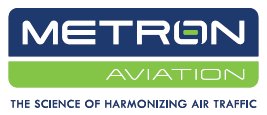Metron Aviation Selected for SESAR ATM Research and Development

Metron Aviation announced today that it has been selected by Thales to perform advanced research and development work on the Single European Sky ATM Research program (SESAR). SESAR is the European program for air traffic management infrastructure modernization which aims to develop the Europes next generation air traffic control system.
As announced last year, Metron Aviation was selected as the FAAs prime contractor on the SE-2020 Research and Mission Analysis Set-Aside. SE-2020 is the FAAs strategic program for implementing the Next Generation Air Transportation System (NextGen), and the ten-year contract awarded to Metron Aviation has a value of $ 1.15 billion.
Metron Aviation will be working on the development phase of SESAR, carried out by the SESAR Joint Undertaking, which will produce the new generation of technological systems and components as defined in the European ATM Master Plan. Metron Aviation will carry out research and development activities that support the European ATM Master Plan for safe, cost-efficient and environmentally sustainable air transportation.
"Working on both SESAR and NextGen programs is immensely rewarding since our mission revolves around the science of harmonizing air traffic around the globe," said Dave Ellison, President and Chief Executive Officer, Metron Aviation. "Our organization is fully committed to the success of SESAR and NextGen in delivering unprecedented levels of benefits to all aviation stakeholders and the flying public."
Metron Aviation provides advanced and collaborative ATM products and services for the global aviation industry, including Air Traffic Flow Management (ATFM), concept engineering, advanced research, software development, surface operations management, airspace design and environmental analysis. Metron Harmony, the companys commercial ATFM and CDM product, is being adopted globally by industry-leading Air Navigation Service Providers (ANSPs) including Airservices Australia and ATNS South Africa, and by U.S and international airlines seeking to optimize efficiency, maximize throughput, improve predictability, lower operating costs, decrease fuel burn and reduce emissions.
Metron Aviation will be working on the development phase of SESAR, carried out by the SESAR Joint Undertaking, which will produce the new generation of technological systems and components as defined in the European ATM Master Plan. Metron Aviation will carry out research and development activities that support the European ATM Master Plan for safe, cost-efficient and environmentally sustainable air transportation.
"Working on both SESAR and NextGen programs is immensely rewarding since our mission revolves around the science of harmonizing air traffic around the globe," said Dave Ellison, President and Chief Executive Officer, Metron Aviation. "Our organization is fully committed to the success of SESAR and NextGen in delivering unprecedented levels of benefits to all aviation stakeholders and the flying public."
Metron Aviation provides advanced and collaborative ATM products and services for the global aviation industry, including Air Traffic Flow Management (ATFM), concept engineering, advanced research, software development, surface operations management, airspace design and environmental analysis. Metron Harmony, the companys commercial ATFM and CDM product, is being adopted globally by industry-leading Air Navigation Service Providers (ANSPs) including Airservices Australia and ATNS South Africa, and by U.S and international airlines seeking to optimize efficiency, maximize throughput, improve predictability, lower operating costs, decrease fuel burn and reduce emissions.


.jpg)

.png)






Comments
There are no comments yet for this item
Join the discussion